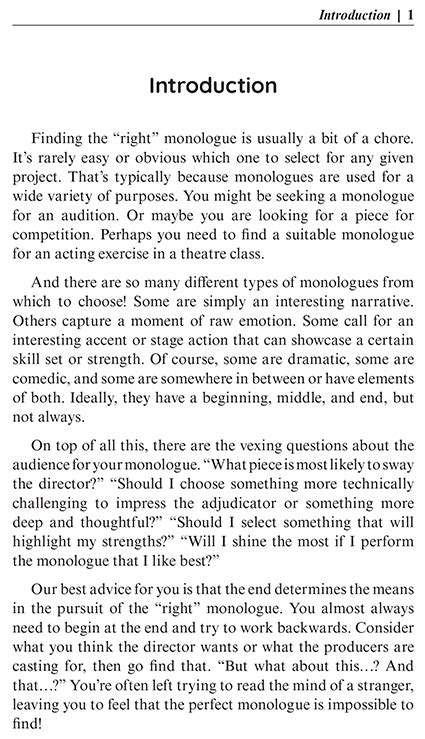Introduction

The theatre, a mesmerizing realm of expression, has given birth to countless unforgettable monologues that have left an enduring mark on our hearts and minds. These verbal masterpieces, delivered with passion and eloquence, delve into the innermost recesses of human experience, expressing the full spectrum of emotions, conflicts, and aspirations that define our lives. In this comprehensive article, we embark on a literary odyssey, exploring some of the most iconic and powerful monologues from the world of plays.
Hamlet’s Existential Dilemma (Hamlet, William Shakespeare)
“To be or not to be, that is the question:”
Hamlet, the brooding prince of Denmark, grapples with life’s profound existential quandary in this iconic monologue. Torn between the allure of life and the inevitability of death, he contemplates the consequences of his actions and the fragility of human existence. With each word, Shakespeare weaves a poignant tapestry of introspection and philosophical inquiry that continues to resonate with audiences centuries later.
Macbeth’s Descent into Darkness (Macbeth, William Shakespeare)
“Is this a dagger which I see before me?”
Macbeth, the ambitious but ultimately doomed Scottish general, unravels into madness and despair in this gripping monologue. After murdering King Duncan, he is haunted by guilt and paranoia, his world descending into a chaotic nightmare. Shakespeare’s masterful use of imagery and symbolism creates a vivid and terrifying portrayal of a mind spiraling out of control.
Lady Macbeth’s Ambitious Urge (Macbeth, William Shakespeare)
“Come, you spirits / That tend on mortal thoughts, unsex me here!”
Lady Macbeth, the driving force behind Macbeth’s treacherous plot, delivers a powerful incantation in this iconic monologue. Desperate for power, she invokes supernatural forces to divest herself of her feminine qualities and embrace her ruthless ambition. Shakespeare’s language is both evocative and chilling, capturing the depths of Lady Macbeth’s determination and the darkness that consumes her.
Blanche DuBois’s Poetic Elegy (A Streetcar Named Desire, Tennessee Williams)
“Wherever I go, I hear that waltz… I used to dance with him on the long porches of Belle Reve.”
Blanche DuBois, the faded Southern belle at the heart of Williams’ Pulitzer Prize-winning play, delivers a lyrical and haunting monologue that encapsulates her tragic past and fragile present. As she reminisces about her lost love and shattered dreams, the audience witnesses a poetic elegy for a life both beautiful and broken. Williams’ words flow like a bittersweet melody, evoking both longing and regret.
Willy Loman’s Unfulfilled Dreams (Death of a Salesman, Arthur Miller)
“Attention, attention must be paid to such a man as I am.”
Willy Loman, the aging and disillusioned salesman, pours out his heart in this wrenching monologue that reveals the shattered remains of his American Dream. Miller’s poignant prose captures Willy’s desperate need for recognition and his profound disappointment in his unfulfilled life. This timeless monologue has become an anthem for the struggles and frustrations of the modern working class.
Edmund’s Naturalistic Perspective (King Lear, William Shakespeare)
“Thou, Nature, art my goddess.”
Edmund, the illegitimate son of Gloucester, rejects the artificial constraints of society and embraces a naturalistic philosophy in this compelling monologue. He argues that humanity is governed by instinct and passion, not by moral codes or inheritance. Shakespeare’s exploration of nature and the human condition remains as relevant today as it was centuries ago.
Hedda Gabler’s Restless Spirit (Hedda Gabler, Henrik Ibsen)
“I wish I could bore myself to death.”
Hedda Gabler, the enigmatic and rebellious protagonist of Ibsen’s masterpiece, delivers this cutting line in a monologue that reveals her deep-seated dissatisfaction and disdain for the stifling social conventions that suffocate her. Ibsen creates a complex and provocative character whose boredom and restlessness speak to a universal longing for purpose and fulfillment.
Ivanov’s Existential Crisis (Ivanov, Anton Chekhov)
“I’ve lost myself to others… And I haven’t added anything to their lives.”
Ivanov, the titular character in Chekhov’s play, grapples with an existential crisis in this poignant monologue. He realizes that he has sacrificed his own happiness and ambitions to meet the expectations of others, leaving him feeling empty and unfulfilled. Chekhov’s insights into the human condition continue to resonate with audiences, reminding us of the importance of living a meaningful life.
Nora Helmer’s Revolutionary Decision (A Doll’s House, Henrik Ibsen)
“I believe that I am first and foremost a human being, just as much as you – or anyone else.”
Nora Helmer, the seemingly ordinary housewife in Ibsen’s groundbreaking play, delivers a powerful monologue in which she renounces her traditional role and asserts her independence. She challenges the patriarchal norms of her society and embraces her own identity, becoming a symbol of feminist rebellion. Ibsen’s work continues to inspire and empower audiences worldwide.
Conclusion
The monologues presented in this article represent a mere fraction of the countless masterpieces that have graced the stage. These verbal tours de force not only entertain but also provoke thought, challenge societal norms, and evoke profound emotions within us. From Hamlet’s existential angst to Nora Helmer’s feminist awakening, these monologues stand as timeless testaments to the power of language and the human experience. As we delve into the depths of these literary treasures, we gain a deeper understanding of ourselves, our place in the world, and the boundless possibilities of human expression.
